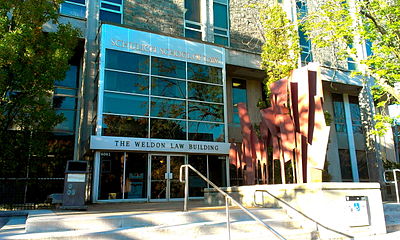Tenant’s Guide to Leasing Space
 1. Hire an Experienced Real Estate Agent/Broker. When leasing commercial space, almost every tenant should engage a real estate professional with a focus on representing tenants (a “Tenant Rep”). Here are the primary reasons: (A) a Tenant Rep will add efficiency and value to the leasing process by narrowing the tenant’s search to suitable properties and possessing market knowledge and experience that enables the negotiation of more favorable lease terms; and (B) the landlord pays the Tenant Rep’s fees, so there is no additional cost to the tenant. Hiring a good Tenant Rep is the best way to ensure the lease you execute is right for your needs, both economically and otherwise.
1. Hire an Experienced Real Estate Agent/Broker. When leasing commercial space, almost every tenant should engage a real estate professional with a focus on representing tenants (a “Tenant Rep”). Here are the primary reasons: (A) a Tenant Rep will add efficiency and value to the leasing process by narrowing the tenant’s search to suitable properties and possessing market knowledge and experience that enables the negotiation of more favorable lease terms; and (B) the landlord pays the Tenant Rep’s fees, so there is no additional cost to the tenant. Hiring a good Tenant Rep is the best way to ensure the lease you execute is right for your needs, both economically and otherwise.
2. Economics. Rent is typically a business’s second most significant expense behind payroll, making lease terms fundamental to a business’s success. Tenants need to understand how rent is determined (does it include all or a portion of the building’s operating expenses or net out non-usable spaces such as stairwells, elevator banks and structural columns?). If operating expenses are included, the tenant should pay special attention to which operating expenses (real estate taxes, insurance premiums, repair and maintenance costs, utilities, etc.) will be passed through to them, how these expenses will be allocated among all tenants and how these expenses may increase (or be capped).
3. Lease Term, Renewal Rights and Expansion. A tenant concerned about the viability of its business or its future needs should try to negotiate a shorter lease term that includes certain renewal rights. Or, as an alternative, early termination rights (perhaps based on not meeting sales hurdles for retail tenants or obtaining a liquor license for a restaurant). A tenant who has the possibility of expansion should consider expansion rights within the premises at agreed upon rates, including rights of first refusal or offer on suitable space within the premises. Another important consideration with respect to the term is when it begins – no tenant wants to be paying rent before it can move in and use the space, but that is what often happens when there are delays in the build out of the space.
4. Lease Guaranties. Some landlords will require one or more individuals and/or entities to guaranty a tenant’s obligations under a commercial lease. Some guaranties provide that the guarantor is responsible for all tenant obligations under the lease, while others impose liability on the guarantor only for certain obligations or only in connection with certain tenant defaults. Other times guaranties will “burn off” after a certain period of time. Alternatives to consider include letters of credit or larger security deposits. Since a guaranty typically involves putting an individual’s personal assets at risk, this is a matter well worth negotiating.
5. Use and Exclusivity Clauses. The use clause in a commercial lease sets forth the purposes for which the tenant may use the premises. Although more common in retail leases, some use clauses prohibit certain operations that have been reserved exclusively for another tenant (such as a drugstore or particular type of restaurant). It is important that the use clause in a lease be carefully drafted to ensure it is consistent with other use clauses and allows the tenant to adequately use the leased premises for its permitted use. Similarly, it is important to restrict competitors from a use that may hurt your business within premises controlled by your landlord.
6. Construction and Alterations. Commercial tenants generally require a particular build out (also called “tenant improvements”) of the leased premises to meet their specific needs. The lease should be very specific in regards to allocating responsibility between the landlord and tenant for performing and paying for such work and the timing for completion (which often dictates commencement of rent payments). In addition, the tenant should retain rights to alter or modify the initial construction of the leased premises as needs arise down the road.
7. Assignment and Subletting. The flexibility to assign or sublet under a commercial lease can be crucial to a tenant in today’s market and is an important exit strategy. Not only may a tenant need to downsize due to business slowdown, the business may be sold completely or its corporate structure reorganized. Such matters constitute “transfers” generally prohibited in leases unless negotiated at inception.
8. Insurance and Indemnity. Most commercial leases contain complicated insurance and indemnity provisions, allocating extraordinary risks under the lease. Tenants will want to make sure that these provisions are reasonable and that they have adequate insurance prior to signing the lease.
9. Default and Remedies. Tenants want notice if they have defaulted in lieu of immediate eviction. They also want to have certain rights if the Landlord defaults, especially in providing some key services essential to the tenant’s business.
10. Hire an Experienced Attorney. Since most lease forms are drafted heavily in favor of the landlord, an experienced leasing attorney can greatly assist a tenant (in conjunction with a Tenant Rep) by reviewing and negotiating lease terms that adequately protect the tenant’s specific interests. Your Tenant Rep can often recommend a good attorney.
